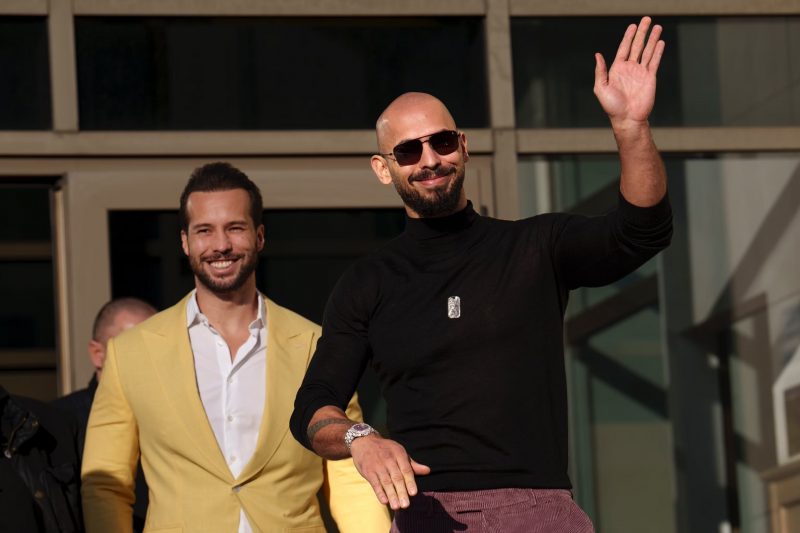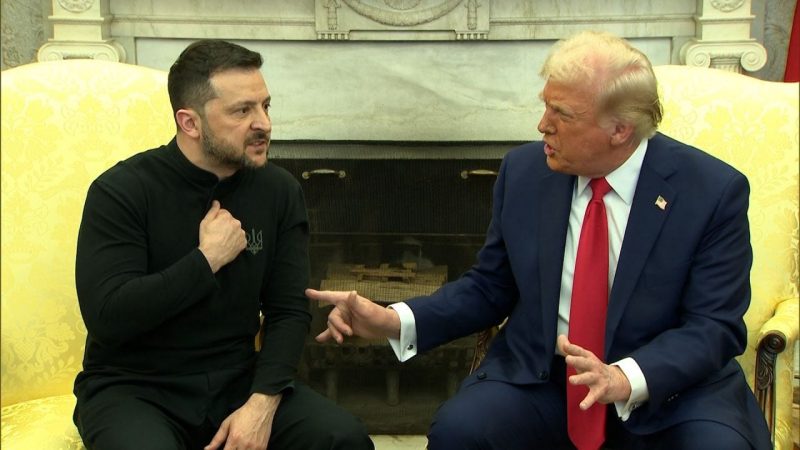Grey-filtered morning & no one on the street
looks happy, a few unpleasantly defiant,
the sweep of catastrophe apparent.
Nation
Last Word
“The Bulwark’s” JVL has been helping anti-Trumpers think through their options. He seems destined to become a stalwart in what’s been dubbed The Defiance.[1] ICYMI, here’s the conclusion of Last’s April 1rst post comparing Elon Musk’s “family values” to those of Kilmar Abrego Garcia—a migrant from El Salvador who has been a loving father to an autistic child. Garcia was deported last month…
One last thing. The federal government now stipulates that it was wrong to deport Kilmar Abrego Garcia to a foreign prison. It admits that it broke the law.
But instead of trying to remedy its error, our government is going to the mat in an attempt to prevent remedy. The government claims in a filing that the president of the United States has no power—none!—over the sovereign nation of El Salvador and could not possibly coerce the country into returning Abrego Garcia to America.
The Party that Calls Us “Groomers” Passes a Law Allowing Genital Inspection of Minors without Parental Consent
Horrors that morons chose begin now.
Flag-draped walls are closing in now.
Whales sleep vertically, holding their breath.
Stars blink on. Hungry birds cry Ruin. Now
Artemis is running out of arrows.
Progress cut off like a foreskin. Now
the virus-spreading chickens have flown home
to roost. We bury the beached dolphin now.
In Yiddish, “vance” is “bedbug.” Pols twist words
like dishtowels. Empathy is sin now.
Say His Name

Here’s 24-year-old Frengel Reyes Mota, a Venezuelan immigrant with no criminal record in the States or in Venezuela.
He’s not part of a gang.
He’s not said anything about Gaza or Israel.
He’s just a house painter who left his home country due to the unrest and difficulties there, and came to the US legally seeking asylum.
He didn’t show up for his asylum hearing this week, though, because when he showed up for his regular ICE check-in — which he should as a legal immigrant in the US — ICE arrested him and soon deported him to the largest prison in Latin America, the notorious Terrorism Confinement Center in El Salvador.
Romanticism in Ogallala
“You don’t have to die,” Segarra sings, their timbre plaintive and urgent but knowing and confident on “Alibi” – the first track on Hurray for the Riff Raff’s sublime record The Past is Still Alive from last year – open strings ringing on an acoustic guitar over roundy left-hand piano chords. “If you don’t want to die”, the line continues, a lead guitar a little trembly, a pedal-steely organ somewhere back there too, the arrangement solidly Americana but already giving so much more. “You can take it all back / In the nick of time”: the song is giving love by giving time. Giving time by creating it. Creating it for someone. These two have a history – shared secrets, track marks, New York City, “I love you very much / And all that other stuff.”
I started thinking about Keats (after a few dozen listens) in connection to the next line – “Thawing out my heart like meat” – thinking probably, for reasons that didn’t quite make sense at first, about Keats’s “burning forehead” and “parching tongue” in “Ode on a Grecian Urn,” where the “cold pastoral” of the vase cannot thaw like “all breathing human passion” can. Segarra: “Baby, help me understand.”
Current Cinema: “Rustin,” “No Direction Home” & “Hard Truths”
When it comes to bio-pics of 60s heroes, Rustin beats Like a Complete Unknown. Though both flicks suffer from their dependence on simulations of performances that have already been filmed. Rustin builds toward The March on Washington where actors ventriloquize Mahalia Jackson’s gospel and King’s dream. Like a Complete Unknown heads toward a nada take on Dylan at Newport ‘65. (You can hear the real electric thing and even watch Bloomfield wailing with Dylan ((“Let’s Go!…All right!”)) as a Chicago blues all-star rhythm section drives them hard.)[1] Timothy Chalamée has been praised for learning how to play Dylan’s songs, but he can’t put them across. None of his performances touch the indelible scene in Inside Lewelyn Davis where a folkie (Oscar Isaac) takes his best shot and fails to move an Albert Grossman type: “I don’t see a lot of money here.”
Rebel Yell
One of the things I try to do when writing a post is to find a common theme, some way to bring a number of perhaps disparate events together in a way that makes sense. This works fairly well when posting regularly. The material on the input end, the stuff happening in the world, somehow settles at a manageable level.
When, however, for whatever reason, posting gets delayed for a week or so, material on the input end gets entirely out of control. How do you keep up with the chaos, the destruction, the incompetence, the daily national humiliations wreaked upon us by the Trump administration? And then how does one categorize events so that they somehow at least seem to cohere?
It turns out that a nation descending into its twilight comes in many guises, disguises, events comical, ridiculous, but also disturbing, grieving, dangerous. And, it turns out, and this is both unnerving and heartening, a citizen in such a declining nation can find him or herself rooting against the nation’s own leaders, cheering their humiliation, applauding when their plans are thwarted, welcoming even a level of personal pain, even harm, if such destruction, such chastening, may, perhaps, lead to a renewed, if humbler, nation in the end.
If I Were the Devil (Redux)
Preface
In 1965, the late Radio Hall of Fame broadcaster, Paul Harvey, aired a commentary titled, “If I Were the Devil.” Conservative that he was, Harvey’s devil would have set out to undermine civilization by supplanting faith with science, promoting sexual content on TV, and evicting God from the courthouse. You can hear the full commentary at: https://www.youtube.com/watch?v=4LWPcEo2gV0 . I recommend that you do so for the self-serving reason that the experience of reading my own version will be greatly enhanced if you can keep Paul Harvey’s resounding voice and idiosyncratic rhythms somewhere in mind as you read.
Trap
How ridiculous and how strange to be surprised at anything that happens in life. — Marcus Aurelius
that was a base mob wannabe move,
a Bergin Fish & Hunt Club on 101st Avenue move,
a turncoat who forgot to wear his 80’s Ozone Park overcoat move,
a he had a deal move, a farcical mob extortion move
American Shame: Brooks & Auden (& Elon)
(ICYMI), Brooks confesses to feeling “moral shame” as he watched the beatdown in the oval office. His revulsion seemed up to the moment…
Stop all the clocks, cut off the telephone,
Prevent the dog from barking with a juicy bone,
Silence the pianos and with muffled drum
Bring out the coffin, let the mourners come.
Collision, January 2025
(When asked if he would visit the crash site, Trump replied, “…what’s the site? The water? You want me to go swimming?”)
The helicopter and the airplane crash.
The crash site is outside of Washington.
Who will visit?
The air is dangerous. The land.
The water.
Do they want me to go swimming?
Websites are crashing.
Who will visit?
What’s the site?
Hopes are crashing.
We see
the crash site is expanding.
Our eyes are sore.
Who will visit?
Who will see?
Do they want me to go swimming?
I am frightened.
I am crashing.
The water is rising.
The waves are crashing.
Who will visit?
Who will comfort?
Who will die?
This land is American.
This land is our land.
This land is a crash site.
The water is full of words.
The water is a crash site.
The water is American.
Water can change its name.
Words are crashing.
Will you visit?
We are living in a crash site.
I can’t swim.
Atlantic Alliance
David Aaronovitch ended his Saturday post — an elegant miscellany that took in audience tittering at a London performance of Richard III, MAGA world’s pro-fascist cosplay, the Trumpite Christers’ takeover of the Kennedy Center — with a note on the latest coup by the Center’s new director and a dive into the depths of the Friday afternoon massacre…

Grenell & The Tates
The Kennedy Center’s new director Ric Grenell wears many hats, none of them remotely artistic. Several involve being a fixer for Donald Trump’s exotic sidelines. So it was that Grenell went to the Munich security Conference alongside J.D. Vance, and while he was there took the opportunity to pressure the Romanian Foreign Minister into releasing the Tate brothers. The Tates were awaiting trial on charges of sex with a minor, rape and sex trafficking, but even if they hadn’t been are two of the most notorious and immoral misogynists in the Western world.
The House We Live In (Black History Lessons In Our Time)
Charles M. Payne — author of I’ve Got the Light of Freedom: The Organizing Tradition and the Mississippi Freedom Struggle — gave a deep talk at Jackson State’s Martin Luther King Day celebration, tuned to the state of our union today. You can watch his twenty-minute presentation above (and the choir that closes the tribute is ((per Dr. Payne)) “out of sight” too).
THE GIRL AT THE END OF THIS BURNING WORLD
…Leada came up from L.A. to escape the fires. She talked about electromagnetic fields, the ex-Mormon guy who gave her chlamydia, pyros and tweakers, the Rothschilds, the imminent Earthquake that would destroy everything, the entire state of California. She picked Leila up in her car that smelled of old Taco Bell and vape smoke and perfume and just drove, blasting different cloud rappers she’d fucked or tried to fuck or who’d tried to fuck her, who were too ugly to fuck, etc. Talia was in the front passenger seat. They crossed the bridge, weaving manically in and out of traffic, drove through the TL, ended up at Fisherman’s Wharf on a cold, desolate night.
I’m Not There: observations from the inaugurations
‘Twas in another lifetime, one of toil and blood / When blackness was a virtue…
I didn’t wake at 6am to face the winter’s dim dawn. I would leave the capital and its grand tradition of peaceful power to the deep chill of fridged temperatures and unforgiving winds. I pulled the bed covers higher and rolled over onto my left side.
Eight years ago I threaded my camera through the Virginia Avenue crowds to enter the mall and climb that shining monument on the hill. A crowd of hundreds (no more) ringed the giant vision. They clapped as their leader took an oath in light hard rain.
Martyrs Then and Now
Florida without sunshine is like a cup of bad coffee or scrambled eggs without salt or pepper, but we were stuck down there in the cold and the drizzle. To break the monotony my companion and I took a sleek little commuter train from Fort Lauderdale to Miami, with two amusements in mind — a seafood restaurant on the Miami River (Garcia’s: five stars!) and The Bay of Pigs Museum.
I think it could be easily argued that Florida itself has served as a laboratory where the agenda and tactics of our current administration were tested — from the cowardly war on woke, to epic grifting. It’s a state full of people who moved there because of the weather, a reason for relocation I find bewildering. I asked one old guy — he was my age! — if he missed his friends back in Boston, and he laughed and said he liked to think of them pulling their hats down to cover their ears while they shoveled their sidewalks. You would rather wear shorts than see your friends? I countered. Ab-so-fucking-lutely he replied.
Along with the sundowners you’ve got your Cubans. There are so many things that make Florida unappealing, it would be unfair and inaccurate to pin the woeful current state of affairs on Miami’s Cuban exile population, but once the Cubans left their expropriated fincas behind and repatriated to Miami, Florida suddenly had a reliable reactionary voting bloc that no ambitious politician could ignore.
The Stupid, the Incompetent, and the Ugly…
A possible title if Sergio Leone directed a film about Trump’s first weeks in office. Who knows? Clint Eastwood might even agree to star.
Urged by Evangelical Christians, The U.S. Returns to Her Rapist (January 20, 2025)
Free from the horrors of the next four years,
the quiet dead rot peacefully
beneath offerings of flowers.
